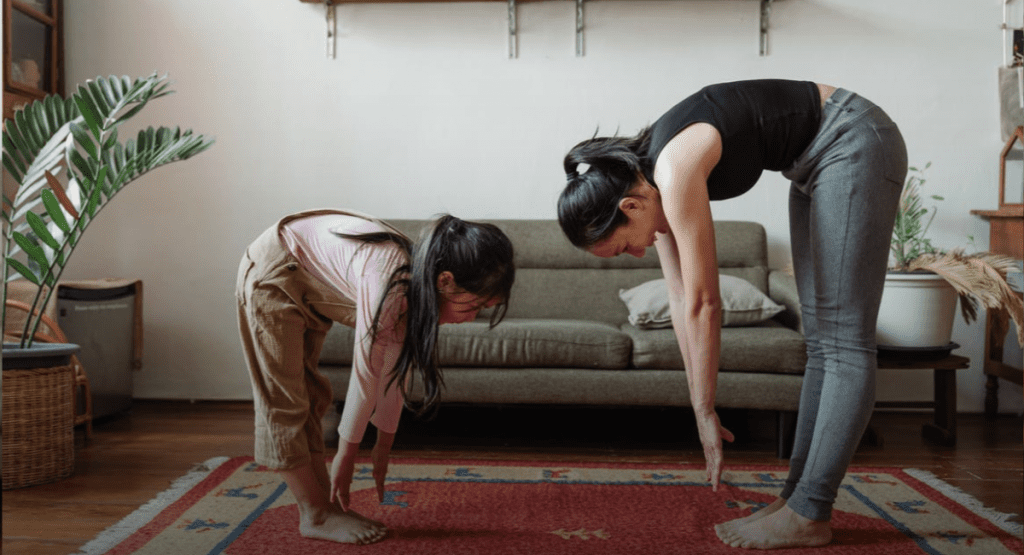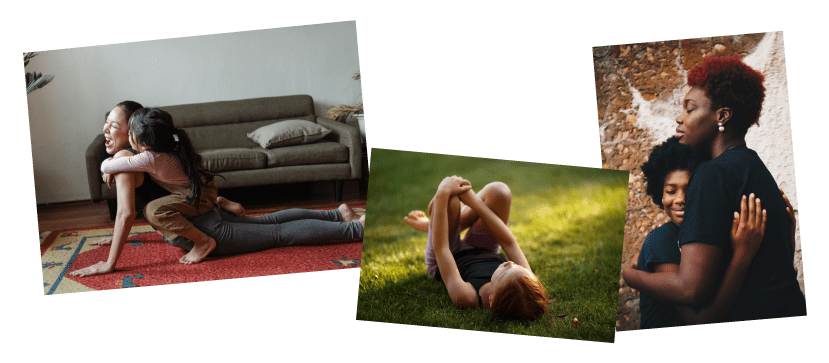As parents, we find ourselves feeling overwhelmed and stressed about the school year ahead. We tune into chat groups only to find a wide variety of differing opinions on what’s right for the kids. While we know that families have to make personal decisions on what is best for their own needs, there are some overarching strategies that we can all keep in mind as we embrace the uncertainty of the new school year.
Knowing that everyone could benefit from guidance regarding the best ways to manage fears about what is to come, we reached out to child psychologist Dr. Julia Hoke.
Dr. Julia Hoke has extensive training and experience helping children, adolescents and parents in understanding anxiety, facing fears, and unlearning anxious patterns of behavior. Working with parents is an integral part of Dr. Hoke‘s approach to helping children and families, and she particularly enjoys supporting parents in strengthening connections, enhancing communication, and managing challenging behaviors. Previously the Director of Psychological Services at Austin Child Guidance Center for almost a decade, she now provides therapy for children and families in her private practice (www.drjuliahoke.com).
 Tips for Parents & Children Facing the New School Year
Tips for Parents & Children Facing the New School Year
These days, many parents are confronted with making difficult choices about the return to school. It’s clear that there is no one-size-fits-all solution, and this decision can be even tougher for parents whose children struggle with learning, emotion regulation, or behavior. As a parent, my social media feed is filled with articles about the pros and cons of virtual versus in-person instruction, guidelines for forming a “pod” or for homeschooling, and posts about the benefits of micro-schools and private tutors.
As a child psychologist, I also see this dilemma playing out in my practice. Many of the parents I work with are feeling overwhelmed and anxious about making such a high-stakes decision with incomplete information, while also feeling worried about judgment from family or friends. Parents whose children struggled with online instruction might be eager to find an in-person option, but also feel anxious about possible exposure to the coronavirus. In addition, balancing working from home with supervising online learning presents parents of young children with a particular predicament—kindergarteners and Zoom meetings are not a natural pairing. Tweens and teens may have their own thoughts about the return school, thoughts that they may express to parents forcefully and with great conviction. It makes sense that many parents are feeling stuck.
Economist Emily Oster, Ph.D., describes a risk assessment system that can be a useful guide for making decisions with scant data. However, even with a plan in place for making a decision, this process will be drawn-out and exhausting for many of us, and it’s likely that we’ll change our minds, especially as new information becomes available.

— Practice self-compassion: We are all parenting through an unprecedented time, and there is no roadmap to follow. You may worry about whether your child will be able to catch up academically, handle separation from peers, adjust to a new school, or be able to wear a mask all day. Mindfulness is an aspect of self-compassion that entails acknowledging your feelings, rather than fighting them or letting them take over. When you notice yourself getting stuck in an anxiety spiral, naming your fears—there go those back-to-school worries–and then letting them go can keep you from being overwhelmed by anxiety (or anger or sadness). Showing kindness to yourself is a way to replenish your internal resources and to connect more genuinely with others. Start small—set down what you’re doing and take just a few minutes each day to practice self-kindness. (You may wish to check out some quick parent-friendly ideas for self-compassion from the Center for Mindful Compassion.) As parents, we can also let children know that it’s o.k. to be worried, frustrated, sad, or even angry, about the current circumstances, rather than rushing in to reassure them or cheer them up.
— Model flexibility: Parents often try to prepare children for what to expect, but during these uncertain times, we often don’t know what to expect. It’s important to acknowledge that we don’t have all the answers, and that things may change. Especially during times of uncertainty, flexibility is an important aspect of resilience. As parents, we can nurture flexibility in our children by sharing examples of times we (or they) dealt with unexpected changes in the past. We can also focus on aspects of the situation that we can control such as establishing family routines, engaging in self-care, and learning more about our options. Helping our kids focus on what they can control, whether it’s setting up a place to study, finishing a Lego project, mastering homemade pancakes, or learning to parallel park—can also cultivate flexibility, as well as reduce stress and boost mood.

— Seek support: This is not the time to power through on your own. Reach out to a family member or friend to talk about what you’re experiencing. Often, the act of sharing your thoughts and feelings with others can bring clarity and comfort. If the current crisis has exhausted your emotional resources, accessing mental health support can provide you with support and solace. Just as importantly, when your children see you seeking support, it makes it more likely that they will do the same during challenging times.
Taking care of ourselves as we wade through this difficult decision-making process allows us to be more present and engaged as parents and can also teach important lessons to our children.
We sincerely wish all parents and children the best at the start of the new school year, and we thank Dr. Hoke for her guidance. If you are interested in reaching out to her, please find her contact info and services at www.drjuliahoke.com.











